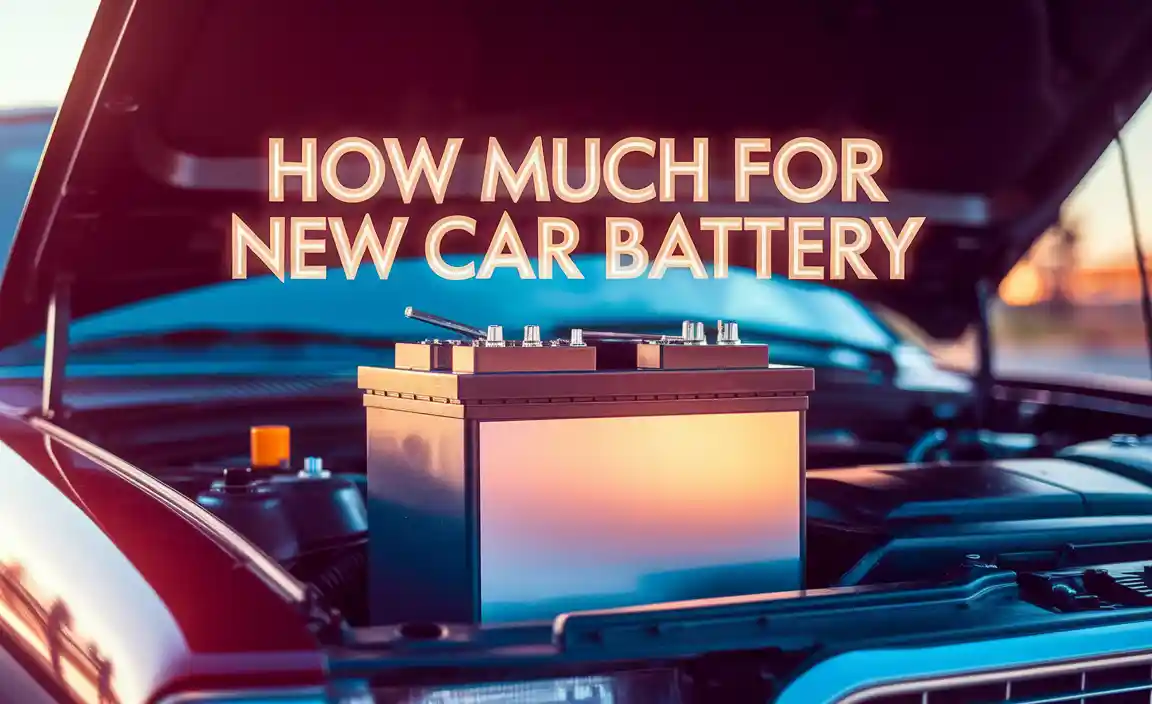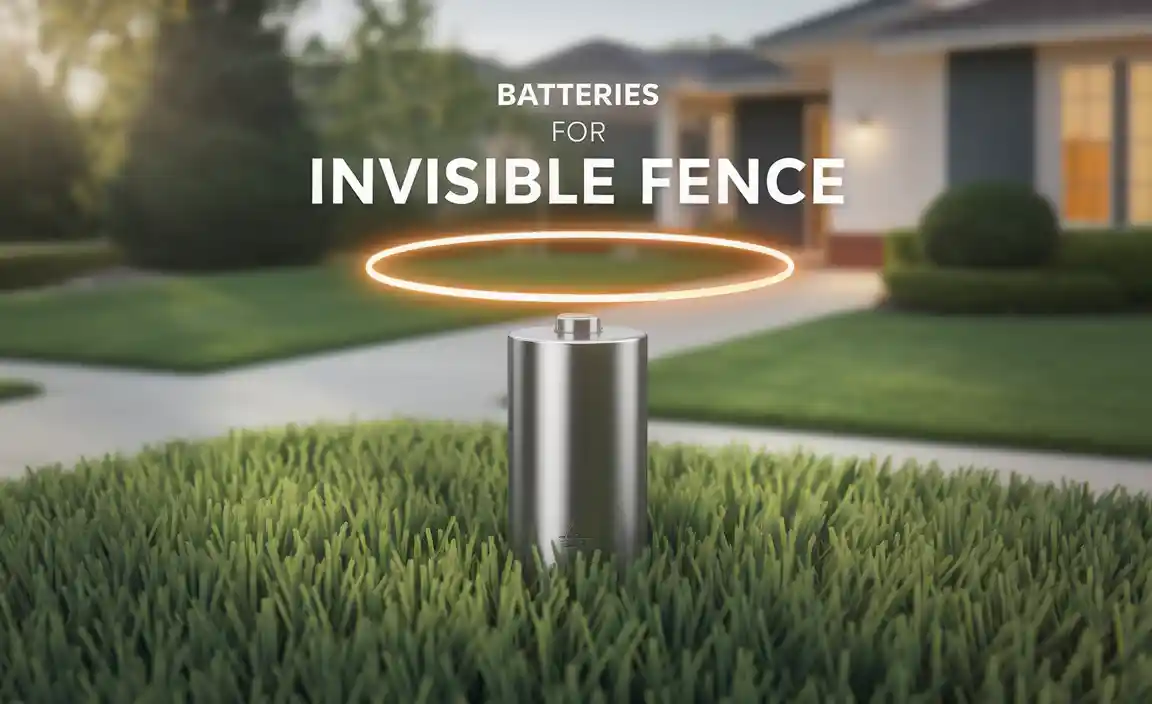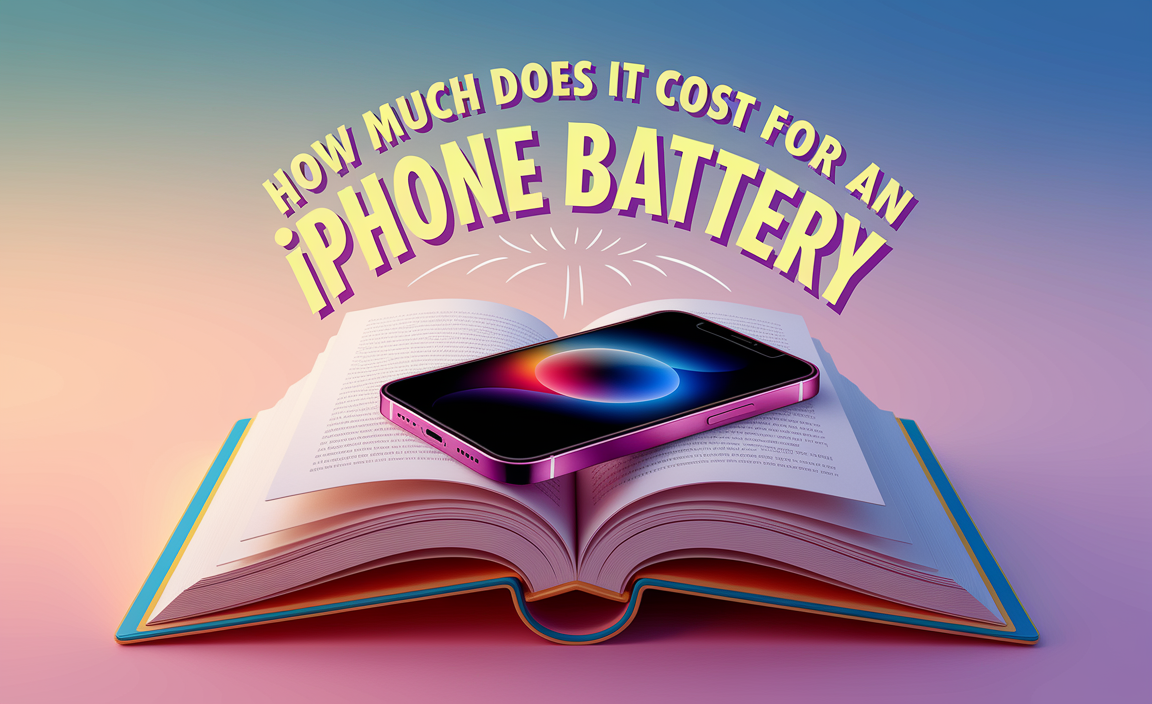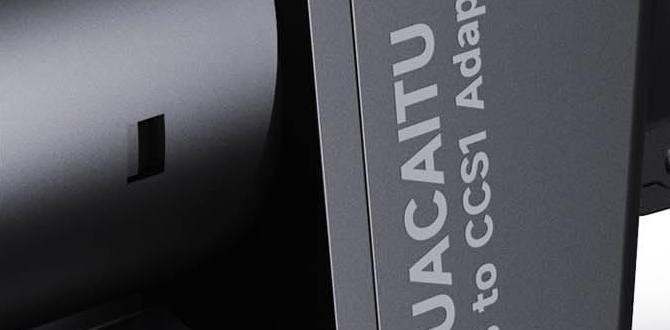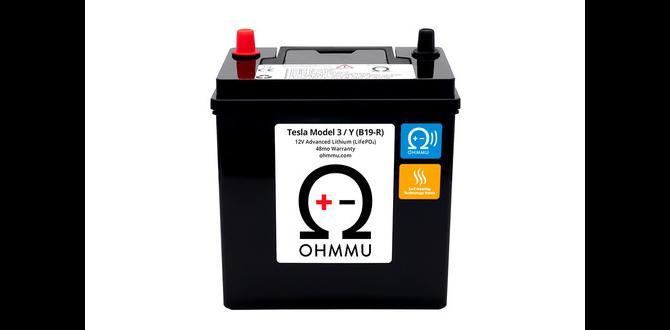Have you ever wondered what happens to used batteries? Most people toss them in the trash without a second thought. But did you know that throwing away batteries can harm our planet? It’s true! Batteries end up in landfills, where they can leak harmful chemicals into the ground.
This is where rechargeable batteries come into the picture. Are rechargeable batteries better for the environment? Many experts think they are. Rechargeable batteries can be used many times before they need to be replaced. This means fewer batteries in landfills.
Imagine you have a toy that needs batteries. If you use regular ones, you might have to buy new ones every week. But with rechargeable batteries, you can just recharge them! Isn’t that cool? This not only saves money but also helps keep our Earth cleaner.
In this article, we will explore the truth about rechargeable batteries and their impact on our environment. Let’s find out if switching to rechargeable batteries is the smart choice for a greener planet!
Are Rechargeable Batteries Better For The Environment?
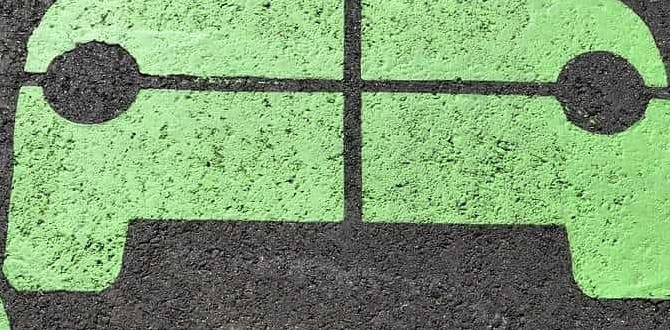
Are Rechargeable Batteries Better for the Environment?
Rechargeable batteries can be a great option for saving the planet. They reduce waste since you can use them many times. Imagine using the same battery for years instead of tossing it after a few uses! This helps cut down on trash in landfills. Plus, fewer new batteries mean less mining and less energy used in production. Isn’t that cool? By choosing rechargeable, you can make a difference and help keep our Earth cleaner for future generations.Understanding Rechargeable Batteries
Definition of rechargeable batteries. Types and common uses of rechargeable batteries.Rechargeable batteries are like superheroes for your gadgets. They can store energy, allowing you to use them over and over. You know, instead of charging your device and tossing the battery like a pizza crust, you can just recharge it! There are several types, like lithium-ion and nickel-metal hydride. These batteries power everything, from phones to cameras. They save money and help the Earth, too. Talk about a win-win!
| Type of Battery | Common Uses |
|---|---|
| Lithium-Ion | Smartphones, Laptops |
| Nickel-Metal Hydride | Hybrid Cars, Power Tools |
| Lead-Acid | Cars, Backup Power |
Environmental Impact of Disposable Batteries
Resource depletion and raw material extraction. Pollution and hazardous waste concerns.Disposable batteries can hurt our planet more than we think. They require precious resources to make, leading to resource depletion. Digging up materials like lithium is like taking candy from a baby—very bad for the baby! Plus, many of these batteries end up in landfills. When they break down, they can leak harmful substances, making pollution worse. Think of it this way: throwing a battery away is like kicking a hornet’s nest; you never know what might sting you later!
| Impact | Effect |
|---|---|
| Resource Depletion | Loss of essential materials |
| Pollution | Harmful chemicals in the environment |
Benefits of Rechargeable Batteries
Reduced landfill waste and environmental footprint. Longterm cost efficiency and sustainability.Switching to rechargeable batteries can help cut down landfill waste. Every single-use battery ends up somewhere, and that could be your favorite park! By using rechargeable ones, we fill those trash cans a bit less. Plus, they can save you money over time. Sure, the upfront cost is higher, but they last longer. Studies show it can save you over 50% in battery costs! Now that’s what I call sustainability with savings!
| Type of Battery | Cost per Use |
|---|---|
| Single-use Battery | $1.00 |
| Rechargeable Battery | $0.20 (after many uses) |
Energy Consumption and Resource Use
Energy required for manufacturing and recycling rechargeable batteries. Comparison of life cycle assessments between rechargeable and disposable batteries.Making rechargeable batteries takes a lot of energy. They need special materials and machines. But don’t worry! These batteries can be used many times. This helps save energy over their lifespan. Disposable batteries, on the other hand, need new resources each time. When we look at their life cycles:
- Rechargeable Batteries: Less energy for multiple uses.
- Disposable Batteries: High energy for one-time use.
Recycling rechargeable batteries can cut waste too. They can be turned into new products. This makes them better for the planet.
Are rechargeable batteries more eco-friendly?
Yes, rechargeable batteries are better for the environment. They reduce waste and require less energy for long-term use.
Recycling and Disposal Practices
Importance of recycling rechargeable batteries. Current recycling programs and best practices.Recycling rechargeable batteries is very important. They can harm the environment if thrown away carelessly. Many recycling programs exist to help with this issue. Some of the best practices include:
- Taking batteries to local recycling centers
- Participating in battery collection events
- Following guidelines for safe disposal
Using these practices keeps our planet clean and safe. It also helps recover valuable materials from batteries.
Why recycle rechargeable batteries?
Recycling rechargeable batteries saves resources and reduces waste. It helps protect wildlife and water sources. By recycling, we encourage a healthier environment for everyone.
Case Studies and Real-World Examples
Impact of adopting rechargeable batteries in various sectors. Success stories of reduced environmental impact.Many businesses and homes are now using rechargeable batteries. This change is making a big difference. Here are some examples of how rechargeable batteries help the environment:
- In Japan, a solar-powered community using rechargeable batteries cut down waste by 30%.
- Electric cars in the U.S. help reduce air pollution. They use rechargeable batteries.
- Schools using rechargeable batteries for devices lower their carbon footprints.
These success stories show how adopting rechargeable batteries can greatly lower waste and pollution. Everyone can take part in helping our planet.
Why are rechargeable batteries better for the environment?
Rechargeable batteries reduce waste and lower pollution levels. They last longer than regular batteries, which means less trash in landfills.
Challenges and Limitations
Limitations of rechargeable battery technology. Misconceptions and myths regarding rechargeable versus disposable batteries.Rechargeable batteries come with some challenges too. They can be more expensive upfront, which makes people think twice. Plus, they don’t last forever; after a few hundred charges, they start to lose their oomph. Many believe rechargeable batteries are perfect, but that’s not true. They also need special care and recycling. Did you know that some folks think disposable batteries disappear into thin air? Spoiler alert: they don’t! Here’s a quick comparison:
| Feature | Rechargeable Batteries | Disposable Batteries |
|---|---|---|
| Cost | Higher initial cost | Lower initial cost |
| Lifespan | Limited cycles | Single-use |
| Environmental Impact | Reusable but needs recycling | Less eco-friendly |
So remember, while rechargeable batteries are a great option, understanding their limitations matters too!
Looking Ahead: Future of Battery Technologies
Innovations in battery technology and their potential impact. Policies and initiatives promoting sustainable battery usage.Battery technology is zooming into the future like a rocket with training wheels! New ideas are popping up, making batteries smarter and greener. For example, scientists are working on solid-state batteries that are safer and last longer. Many countries are also making rules to push for eco-friendly batteries. They want to reduce waste and help our planet, one battery at a time. It’s like finding out your favorite dessert comes with extra sprinkles!
| Innovation | Potential Impact |
|---|---|
| Solid-State Batteries | Safer and longer-lasting |
| Recycling Programs | Less waste in landfills |
| Sustainable Materials | Reduce environmental impact |
Conclusion
In conclusion, rechargeable batteries are better for the environment than single-use ones. They reduce waste and save energy. By using rechargeable batteries, you lower your impact on nature and help fight pollution. Choose rechargeable options whenever you can. To learn more, explore articles or videos on battery recycling and sustainability. Every little choice you make counts!FAQs
Sure! Here Are Five Related Questions On The Topic Of Whether Rechargeable Batteries Are Better For The Environment:Sure! Rechargeable batteries can be better for the environment because we can use them many times. This means we throw away less trash. They can also save money in the long run. However, we still need to recycle them properly when they are old. Overall, using rechargeable batteries helps protect our planet!
Sure! Just give me the question you’d like me to answer.
What Are The Environmental Impacts Of Manufacturing Rechargeable Batteries Compared To Disposable Batteries?Making rechargeable batteries can be better for the environment than making disposable batteries. Rechargeable batteries last a long time, so we use them less often. This means we throw away fewer batteries. However, making any kind of battery uses resources and can cause pollution. When we use rechargeable batteries, we help reduce waste over time!
How Do The Life Cycles Of Rechargeable And Disposable Batteries Differ In Terms Of Waste Generation?Rechargeable batteries can be used many times before they stop working. This means they create less waste over time. Disposable batteries are used once and then thrown away, which creates more trash. So, using rechargeable batteries helps keep the environment cleaner!
What Are The Benefits Of Reusing Rechargeable Batteries In Terms Of Resource Conservation And Carbon Footprint Reduction?Reusing rechargeable batteries helps us save resources and reduce pollution. When we use them again, we need fewer new batteries. This means less mining for materials, which can hurt the Earth. Also, using fewer batteries cuts down on carbon footprints, which are the bad gases that warm our planet. So, by reusing batteries, we protect nature and help make the world a better place!
How Does The Recycling Process For Rechargeable Batteries Compare To That Of Single-Use Batteries?Recycling rechargeable batteries is different from recycling single-use batteries. First, rechargeable batteries can be reused several times before they stop working. When we recycle them, we can recover valuable materials like lithium and nickel. Single-use batteries, on the other hand, are only used once and then thrown away. Their recycling process helps recover materials too, but it’s often not as efficient as with rechargeable ones.
What Factors Should Consumers Consider When Choosing Between Rechargeable And Disposable Batteries For Environmental Sustainability?When choosing between rechargeable and disposable batteries for being kind to the Earth, consider a few things. Rechargeable batteries can be used many times, which helps reduce waste. Disposable batteries are used only once, and they can create a lot of trash. Also, think about how much you will use them and if you can recharge them easily. This way, you can make the best choice for both you and the planet!

